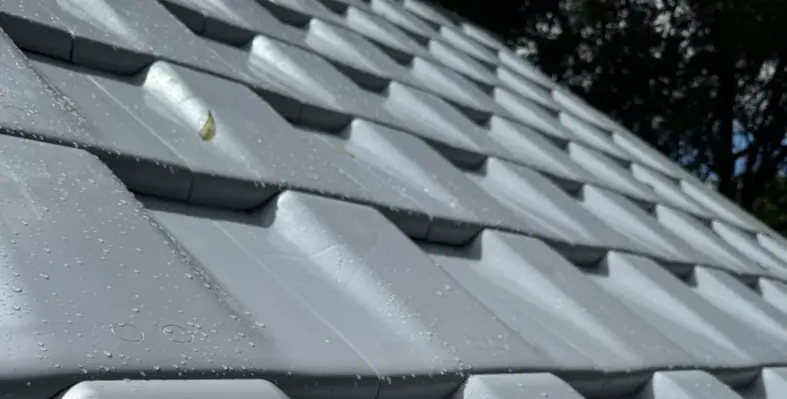Takazuri and BASF have teamed up to deliver durable smart building solutions in Eastern Africa, focusing on climate resilience with sustainable products
This collaboration features Takazuri’s Climatile technology, which uses locally sourced and processed post-consumer materials, paired with BASF’s additive packages customised for the region’s unique weather conditions. The aim is to offer long-lasting, eco-friendly solutions that drive economic development in Africa and positively impact the construction industry and local communities, with the potential to expand to other regions.
“Sustainability is at the core of our business. Our commitment is reflected in our products, which are designed for high performance and multi-functionality while utilising locally collected and converted waste from urban settings, and soon, from ocean plastics collected off the Kenyan coast,” explained Maria Schlesinger, co-founder and CEO of Takazuri.
According to the African Development Bank Group, Africa’s population is projected to double by 2050. This rapid growth and urbanisation are increasing plastic waste and the demand in construction sectors. Takazuri aims to address this by providing affordable climate resilience solutions through local resources and partnerships in various sectors, including housing, commercial, healthcare, education, and humanitarian relief.
Climatile is a roofing and cladding solution designed to enhance indoor temperatures with superior insulation and improved solar reflectance and emittance. It also features a safe rainwater-harvesting surface that resists corrosion. The Climatile system includes a smart clipping mechanism that enables the addition of functional accessories, such as ultra-light frameless solar panels and biophilic components, making it an “upgradable” solution for climate resilience.
Takazuri has been committed to advancing Kenya’s role in climate action and sustainable construction. With products projected to expand across the region and continent, Takazuri is leading the charge towards a more resilient and eco-friendly construction industry in Africa.
“Throughout the development of our technology, BASF has been an invaluable partner, assisting us in areas such as process optimisation, thermal stabilization, and enhancing the service life of the post-consumer recyclates. BASF’s expertise has been crucial in creating additive packages tailored to the region's harsh weather conditions,” added Schlesinger.
Takazuri has also partnered with Gabriel Chemie, a prominent European masterbatch producer, to supply customised Combi-Batch containing colors and stabilizers. This helps ensure dispersion and homogeneity in the polymer matrix during tile conversion.
Plastics require stabilization against thermal and photo-oxidation to meet processing, life cycle, and application requirements. Additive stabilizers are essential not only for virgin plastics but also for improving the quality of post-consumer recyclates used in sustainable applications like Climatile. Proper restabilization with antioxidants and light stabilizers is critical for ensuring the long-lasting performance of Climatile technology, offering leak-free roofing at an affordable cost.
“Our team worked closely with the Takazuri team to understand the technical requirements, specifications, and market positioning of Climatile. This collaboration allowed us to design an optimal additive system to address the challenges of using post-consumer recycled materials for extended outdoor exposure,” said Bettina Sobotka, head of global marketing and development, plastic additives at BASF. “We hope this collaboration benefits the construction sector and local communities in East Africa, fostering economic growth.”












